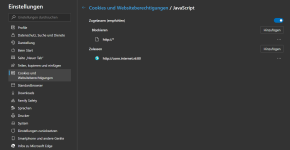@SeriousHoax don't get me started

Adguard filters are better maintained than Easylist filters, so even for uBO users I would advice to use AdGuard block lists instead Easylist/Fanboy. With three filters AG should give you a good internet experience (in terms of website breakage, advertisement hassle and tracking concerns). What you will miss are the rules which are practically never triggered (left 'normal' filter rules count, right 'optimized' filter rules count).
View attachment 249356
Take in mind that AG has a paid service (expanding to dns/vpn service) which provides them the means to maintain their filters, so imagine how much dead wood and stale rules are present in less well maintained blocklists. User initiated blocklists work well for ADDING new rules, not for REMOVING stale rules. For removing stale rules you need an AUTOMATED process (check whether the website is still up and running).
So for starters what you miss out are stale rules, blocking dead-non existent websites or links to those dead websites.
In an old scientific study (see my thread about adblock innivation) adblockers with few rules (Ghostery, Disconnect) were as effective as large blocklist adblockers (AdBlock and uBlockOrigin). In this study Adguard was not included, but AdGuard with optimized filters is somewhere in between, a smart medium sized blocklist adblocker. Reason why those small blocklists are as effective is explained by Peter Low "
The ad banners that you see all over the web are stored on servers. Stopping your computer communicating with another computer can be quite simple. So, if you have a list of the servers used for ad banners, it's easy to stop ad banners even getting to your browser" (
link to source).
Large blocklist try to block ads on the websites you VISIT, small blocklist try to block LINKS to the servers (of ad and tracking networks) on the websites you vist. Because it takes a lot of means (money and people) to setup and maintain these ad and tracking networks AND the advertising delivery is handled by brokers in between companies wanting to advertise and website owners offering advertising space there are only a limited number of ad and tracking networks. This is the reason small blocklists are as effective as large blocklists when visiting the top 10 million websites (e.g. websites with more than 300 visitors per day).
In theory large blocklist are more effective for niche websites, because they focus on the websites people visit.
The achilles heel of focusing on the website people visit, is that a blocklist might contain a lot of block-rules for website you will never visit. This is where the optimized rules feature of AdGuard comes in. Some people allow AdGuard to collect statistics about ad filter usage. The rules which are nearly never triggered by
ALL AdGuard users allowing "send statistics about ad filter usage" are
NOT included in the optimized filters. So when AdGuard has a lot of users in your region, you probably miss out on NOTHING!
When you live in an exotic country with few AdGuard users, chances you miss out of something is still zero to nothing. As shown by the picture optimizing rules cut out around 70K rules. Considering there are around 400 million active websited (
link to source),
chance any of those dropped 70K rules cover one of the 400M niche websites you visit in your exotic region is only 0.0175%. A blog published by Brave Browser team claims that "
over 90% of EasyList appears to provide little benefit for common browsing cases" (
link to source). So this seems to confirm my calculation based on dropped stale rules and number of websites in the world.
When you don't believe me (I am one of bad guys working in digital marketing), think about this: Mister GorHill has proven with benchmarks that performance is not an issue when using large blocklists (well he convienantly forgot to take blocklist load time into consideration). When performance is not the issue and large blocklist are as good as uBO-fanboys say WHY WOULD FIREFOX and MICORSOFT use the small blocklists of Disconnect?
Why would those companies whose core business is browsing (Firefox) and cloud based computing (Microsoft) offer an inferior anti-tracking mechanism when they need to provide potential users a compelling reason to switch from Google to Firefox or Edge? When large blocklists really would be more effective and the best adblocker (uBlockOrigin) according to large blocklist fans is open source, why not use uBO as build-in adblocker with all those large blocklist?
